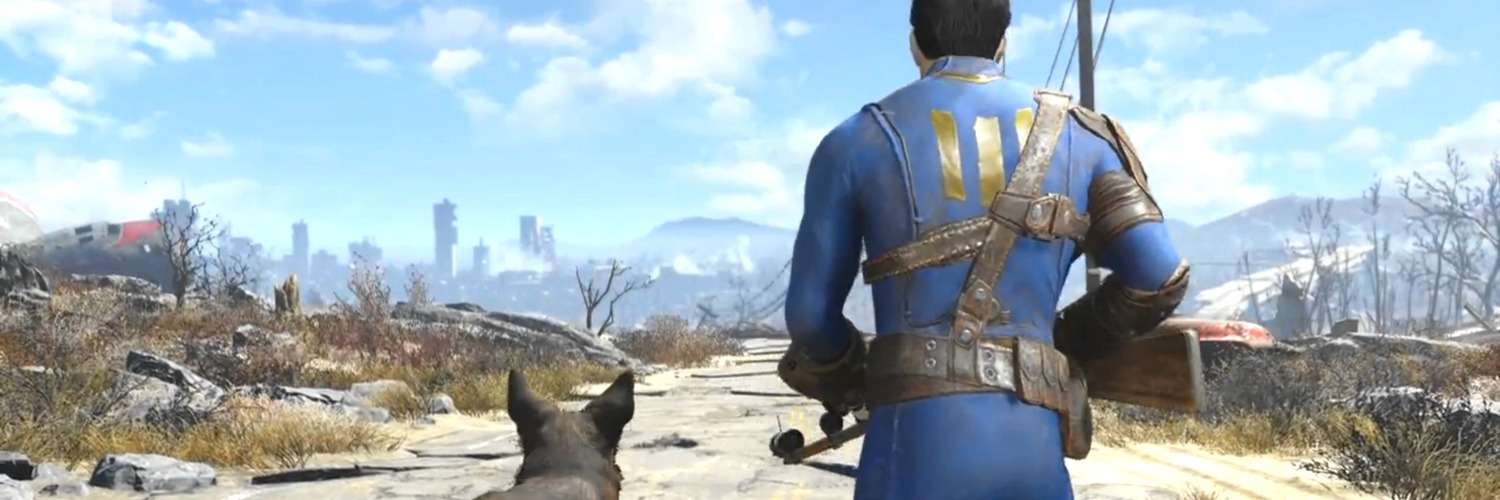
Fallout 4 Xbox One Review
With respect to the classics, it’s fair to say that most of the current notoriety of the Fallout franchise came from Fallout 3. The jump from 2D cult PC game to 3D multiplatform bestseller undoubtedly helped to usher in a new generation of fans alongside the old ones, which is why it’s hardly a surprise that Bethesda continues to follow the formula that proved to be such a success. After all, why fix what isn’t broken (minus the hundreds of game-breaking bugs that are left over from frequent patches)?
After a slight detour in the form of New Vegas, Fallout 4 represents the latest numbered entry in the post apocalyptic RPG series, which leads one to believe that the franchise is due for another huge leap similar to the one between Fallout 2 and 3. While it is said that war never changes, it seems Fallout rarely ever changes, as fans will no doubt find that much of the new ground in Fallout 4 has already been tread.
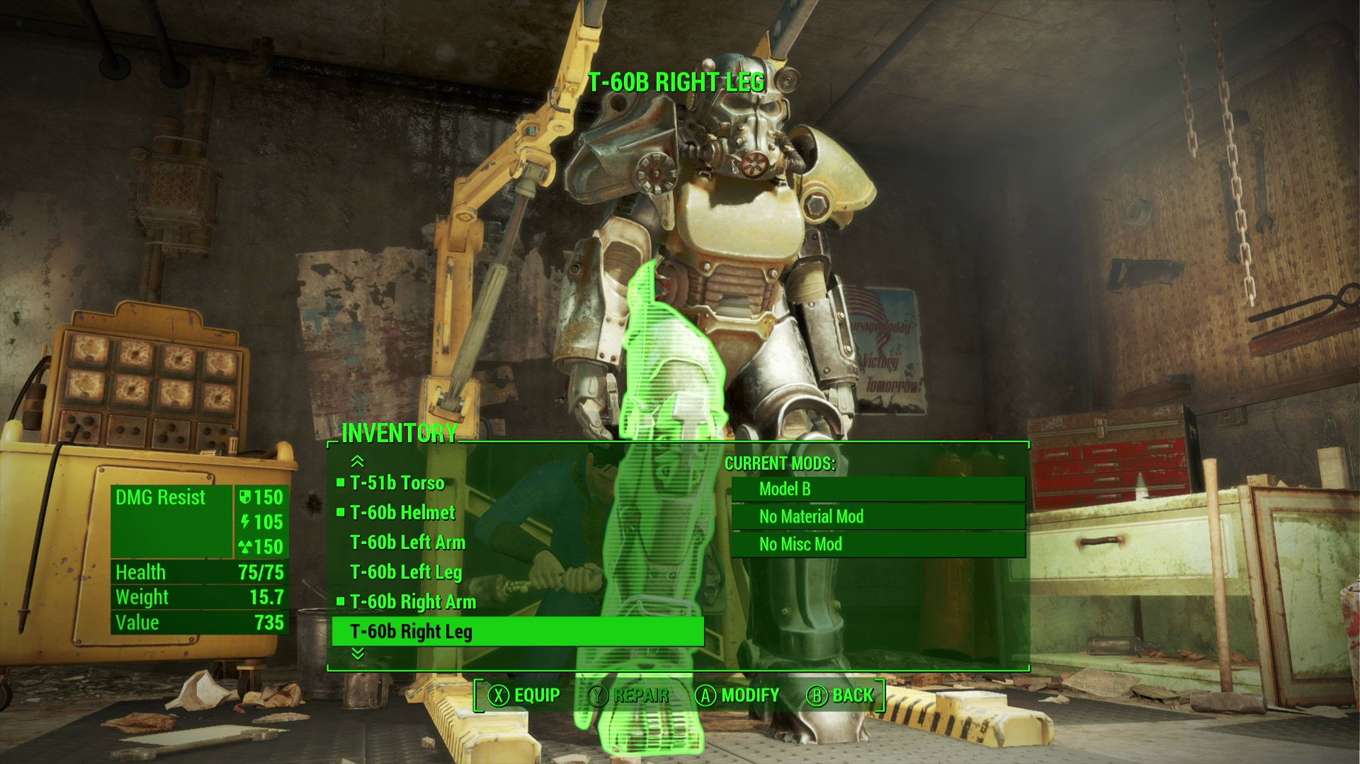
The game does open up a bit differently from its past incarnations, showing what life was like prior to the titular bombshell that brought Armageddon to the modern world. From the start, players are given a choice between two protagonists, a husband and wife living comfortably in a suburban neighborhood that takes place in the far future yet features an intentionally retro-America aesthetic. Shortly after being approached as candidates for Vault-Tec, the shadowy company that promises safety in the event of nuclear fallout while secretly subjecting its vault-dwellers to inhuman thought-experiments, the couple and their infant child narrowly escape the bomb drop to take shelter in Vault 111. Fast-forward 210 years later thanks to cryogenic sleep, the chosen player character regains consciousness just to witness their significant other be murdered by a mysterious duo, who also makes off with their infant son. Vowing revenge and answers, the Vault 111 survivor awakens to an irradiated Boston landscape, using their S.P.E.C.I.A.L. skills to make new friends and a whole lot more enemies in the hopes of surviving the many treacherous elements of the war-torn radioactive world.
For anyone who has played the previous two Fallout games, you can skip ahead in this review, as many of the same gameplay elements, for better or worse, remain largely unchanged. For the uninitiated, the goal of this open world RPG is to explore the open world using RPG elements. What players can and can’t do depend entirely on the number of points they have on a given Perk: having enough Strength points means that players can deal more damage and carry more items before becoming encumbered; having enough Charisma means that they can bypass a lot of NPC demands in order to convince them to assist you in various matters; raising the Lockpicking skill can open up various locked doors and containers, while the Hacker skill does the same for computer terminals. Upgrading the basic stats also unlocks further advanced (and advantageous) abilities, such as higher resistance to radiation, deadlier damage with certain weapon types, a Mysterious Stranger who randomly shows up to finish off enemies, the ability to instantly kill sleeping targets, and so on. Owing much to the era of Deus Ex and other freedom-of-choice RPGs, players can choose to play Fallout 4 however they want, so long as they meet the various point requirements.
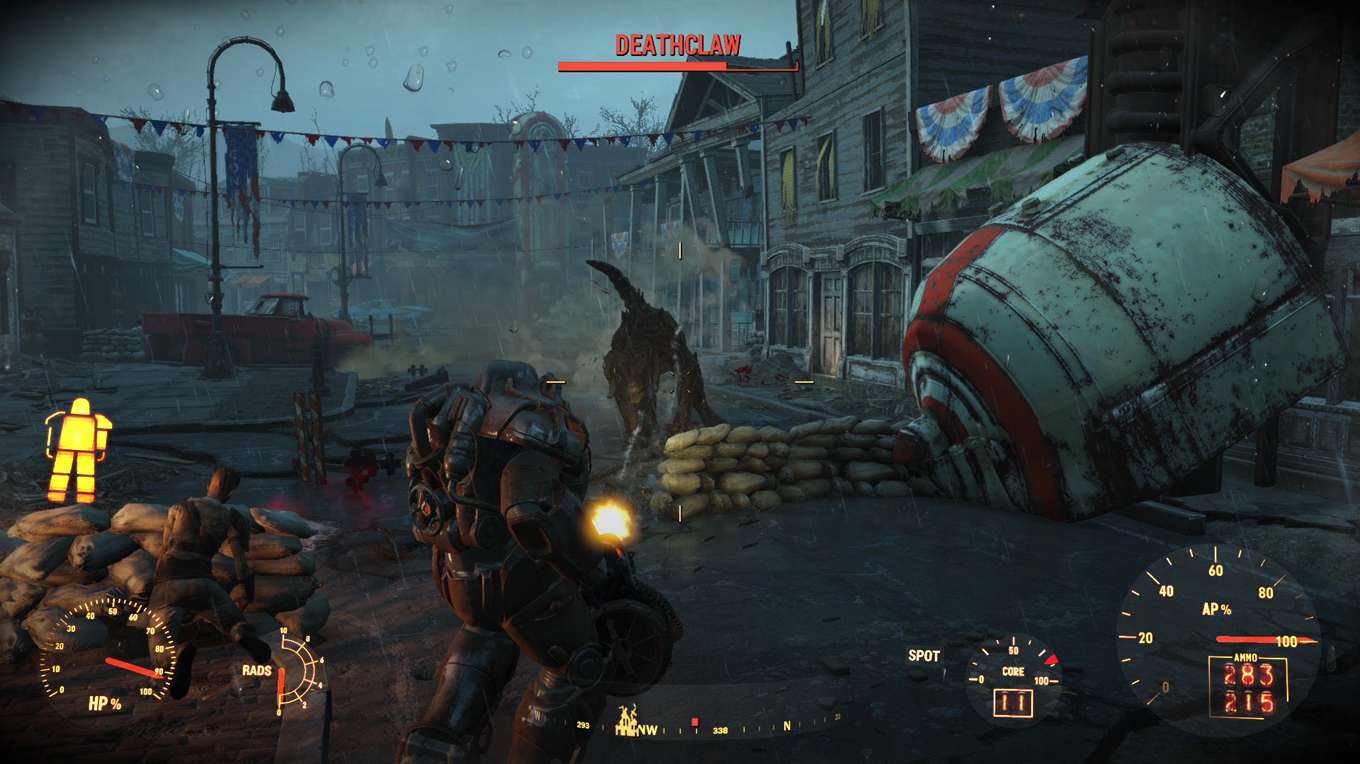
Like with most RPGs, EXP and money drive the world, and players will want to explore every crevice and accept every quest line they come across. Sticking to the main story path yields its own set of rewards, but few will be able to resist making a detour or three along the way to explore a seemingly abandoned house or explore a manhole leading into an entire sewer system filled with murderous raiders (and loot). Leave no stone unturned, as being constantly sidetracked in Fallout 4 means new risks and new rewards. In terms of scale, Fallout 4’s world doesn’t quite reach the record landscapes of previous efforts, but in terms of always finding something worthwhile in every corner, it is unmatched.
While Bethesda has clearly gotten open-world wandering down to a science, it’s a bit disappointing that their presentation is still lagging behind. Make no mistake, Fallout 4 is not an ugly game (at least not in a technical sense): radiation aside, it is a big and beautiful world where almost every screen feels like a set piece moment, not counting the actual scripted set pieces. NPCs engage in daily activities and often converse with one another (evolving their topics based on your actions in the world), random encounters can lead to entirely new stories, and the Matrix-like kills that can be achieved with the VATS system still bring much joy for the murderous side in all of us.
But if you have played either of the last two Fallout games, you’ve played this game before. While recent open-world efforts like The Witcher 3 and Metal Gear Solid V make leaps and bounds with their revisions to both gameplay and graphics, Fallout 4 feels like a minuscule step forward. There are a few quality of life changes here and there, but overall the same old quibbles remain, such as having companions block your way during tight corridors, or dealing with enemies who are a mile away yet somehow hear your footsteps, or the many moments of the trademark jank found in Bethesda titles that lead to floating NPCs, missing geometry or the ever annoying frozen game. Those with a capable computer may also want to invest in the PC version, as the XB1 version tends to struggle keeping up the framerate pace during the busier moments of the game (such as the otherwise stellar opening sequence, where dozens of people run in a panic from the oncoming nuclear explosion).
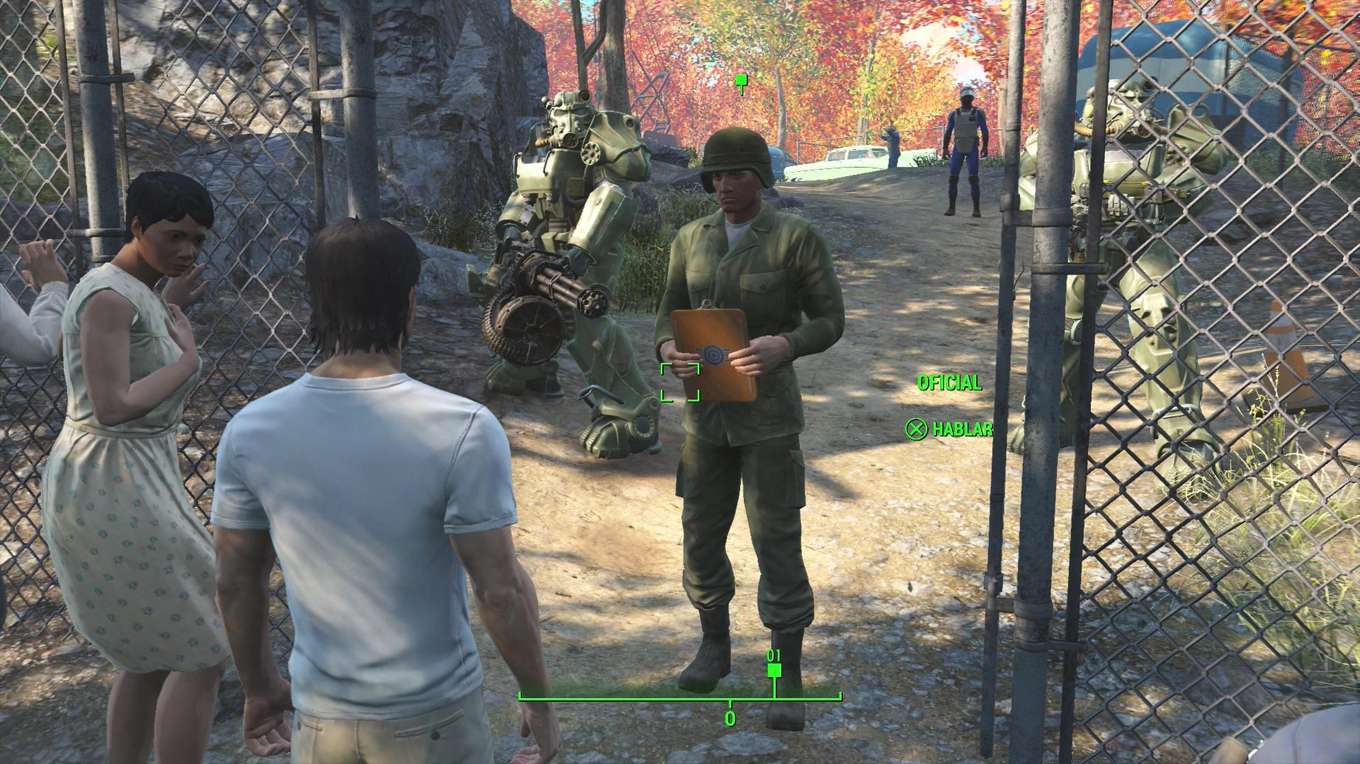
Fans of the writing from Fallout New Vegas may be especially disappointed by Fallout 4’s competent-yet-stunted storyline, where dead characters are mourned for exactly ten seconds and NPCs are all too eager to give the mysterious gun-toting stranger an incredibly important task. Don’t even get me started about the drug-dependent hippie who can see the future, a premise that is every bit as dumb as it sounds yet taken far too seriously. While the game does earn extra points for giving the protagonist a speaking role, the interactions and dialog feel a step below recent story-based games that have raised the bar since.
One entirely new feature is the crafting mechanic; by spending the spare parts taken from junk and other items, materials can be crafted within certain safe zones to create houses, furniture, plants and other resources to restore society in the wasteland. NPCs can even be invited to live and maintain your customized cities, though that also runs the risk of raiders invading. It’s a neat idea that’s bound to especially appeal to the Minecraft crowd, but a few clunky controls get in the way of the otherwise robust feature (such as being forced to build furniture outside of a newly created house before putting it inside).
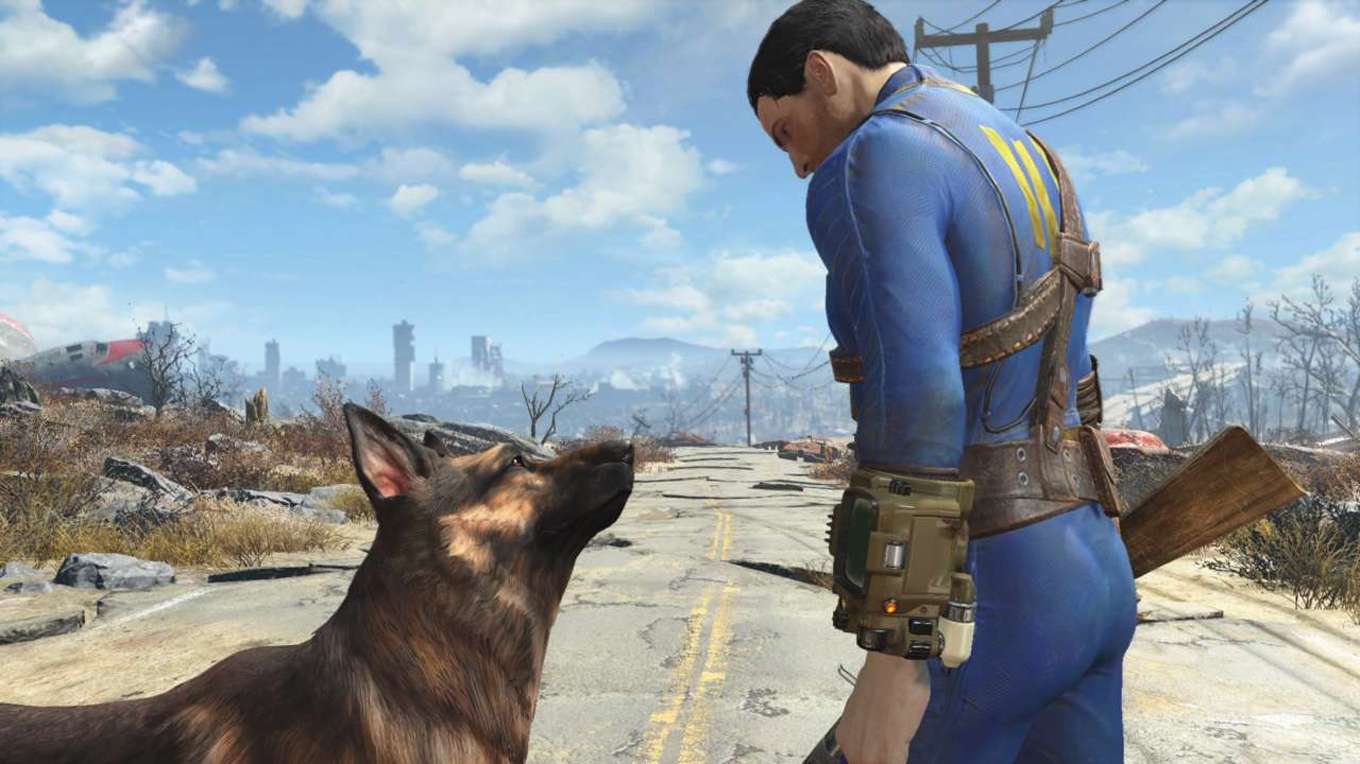
Fortunately, it’s been some time since the last Bethesda title. Were Fallout an annual franchise like Assassin’s Creed or Call of Duty, this stagnation in the core gameplay would have worn out its welcome by now. Overall, Fallout 4 still impresses with its trademark RPG mechanics and smartly-designed world, where exploration never feels like time wasted and players are consistently rewarded for lateral thinking and meticulous investigating. The war on videogames is ever changing, however, and Fallout will need to bring more toys to the battle next time or risk rotting in the wasteland.
